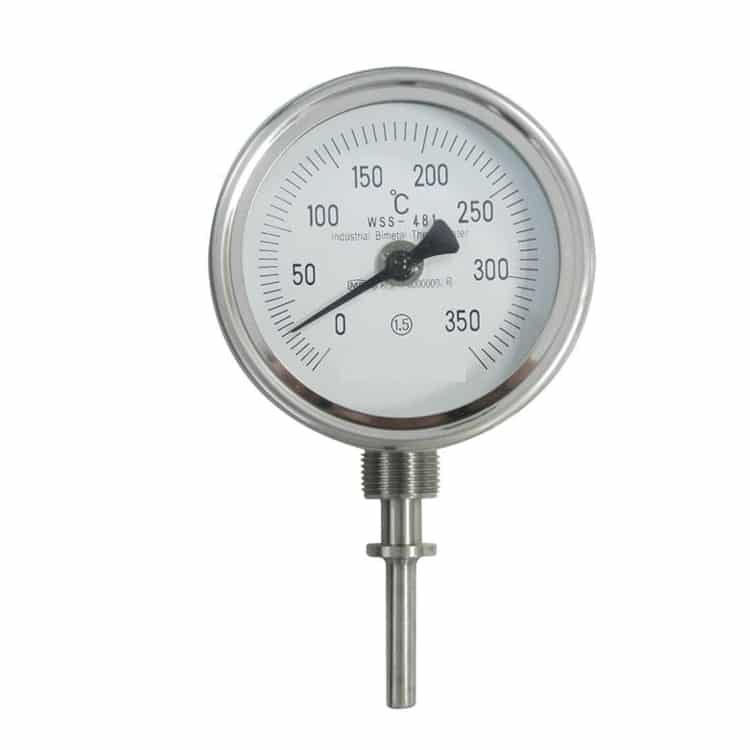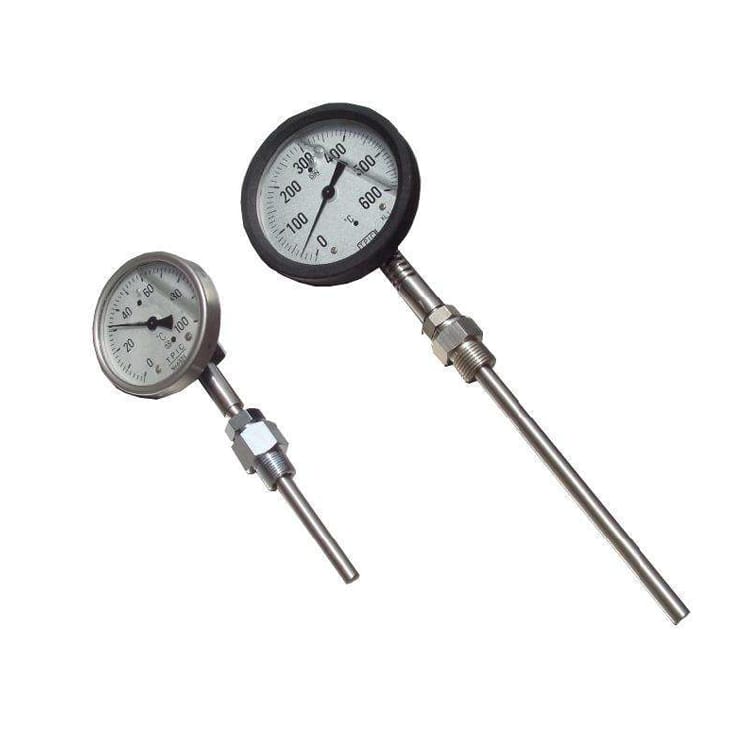Thermocouples are widely used temperature sensors known for their simplicity, durability, and versatility. Whether in industrial processes, scientific research, or household appliances, thermocouples play a crucial role in temperature measurement and control.
What is A Thermocouple?
A thermocouple is a temperature sensor that operates based on the Seebeck Effect. This phenomenon occurs when two different metals are joined at one end and exposed to a temperature gradient, generating a voltage. This voltage is related to the temperature difference between the two ends.
How Does a Thermocouple Work?
- Hot and cold junctions: A thermocouple consists of two different metal wires that are connected at one end to form the hot junction (measurement end), while the other end (cold junction) connects to the measuring device.
- Voltage generation: A voltage is generated when the temperature of the hot junction differs from the cold junction.
- Temperature measurement: The measuring device reads the voltage and converts it into a temperature value using calibration tables or algorithms.
What is the Accuracy and Temperature Range of Different Thermocouples?
Different types of thermocouples have varying temperature ranges and measurement accuracies. Here is a detailed comparison of common thermocouple types:
| Thermocouple Type | Temperature Range (°C) | Accuracy (±) | Features |
| K Type | -200 ~ 1,260 | 1.5°C or 0.4% | General-purpose, suitable for high-temperature applications |
| J Type | -40 ~ 750 | 2.2°C or 0.75% | Suitable for medium-low temperatures |
| T Type | -200 ~ 350 | 1°C or 0.75% | Ideal for low-temperature scenarios |
| E Type | -200 ~ 870 | 1°C or 0.5% | High sensitivity, suitable for low temperatures |
| S Type | 0 ~ 1,760 | 1.5°C or 0.25% | High-precision measurement for high temperatures |
| R Type | 0 ~ 1,760 | 1.5°C or 0.25% | High temperature, durable |
| C Type | 0 ~ 2,310 | 2°C or 0.25% | Extreme high temperatures, often used in vacuum environments |
| GB Type | Customizable | Application-dependent | Special scenarios requiring high temperature measurement |
the Accuracy and Temperature Range of Different Thermocouples
Note:
- Accuracy is typically expressed either as an absolute temperature difference (e.g., ±2°C) or a percentage (e.g., 0.75%).
- High-temperature thermocouples like S, R, and C types provide better accuracy but are more expensive.
Thermocouple Forms
- Probe-type thermocouples: Featuring a robust housing design, these are suitable for measuring temperature in liquids, gases, or solid surfaces. They are commonly used in industrial process control and food processing.
- Wire-type thermocouples: These consist of exposed wires, offering high flexibility and ease of integration into devices, commonly used in laboratory and internal temperature measurement in electronics.
- Infrared thermocouples: These measure temperature by detecting infrared radiation emitted by objects, ideal for measuring moving objects or surfaces that are difficult to reach. They are widely used for high-temperature environments or dynamic measurements.
How to Choose the Right Connection Type?
When using a thermocouple, selecting the correct connection type is crucial to ensure measurement accuracy and reliability. Here are some key considerations:
- Application environment: For high-temperature or corrosive environments, it is recommended to use high-temperature thermocouples or corrosion-resistant connections.
- Installation requirements: Depending on the need, you can choose between threaded connections, flange connections, or plug connections, each suited for different industrial needs.
- Electrical compatibility: Ensure the connection type matches the interface of the measuring equipment to avoid signal errors.
- Response speed: In applications with rapid temperature changes, prioritize connection types with faster response times, such as exposed contact thermocouples.
WSS Temperature Bimetal Thermometer is a great alternative. This product:
- Mechanical design: Does not require an external power source, making it simple and reliable.
- Wide application: Suitable for measuring temperatures in liquids, gases, or steam.
- Durability: Designed to withstand harsh environments, offering a long service life.
- High accuracy: Ideal for scenarios requiring sensitive temperature monitoring.


Summary
Thermocouples, with their wide temperature ranges and various connection options, are the ideal tool for temperature measurement. By considering the accuracy and temperature range of different thermocouple types, users can select the most suitable product for their needs. Additionally, products like the WSS Bimetallic Thermometer provide a cost-effective solution for certain applications.
Apure offers temperature measurement instruments, as well as water quality parameter monitors (pH/ORP, residual chlorine, dissolved oxygen, turbidity, etc.), flow measurement instruments, level measurement instruments, and pressure measurement instruments. If you have questions about thermocouple accuracy, temperature ranges, or connection types, feel free to contact the dedicated technical team for assistance!
